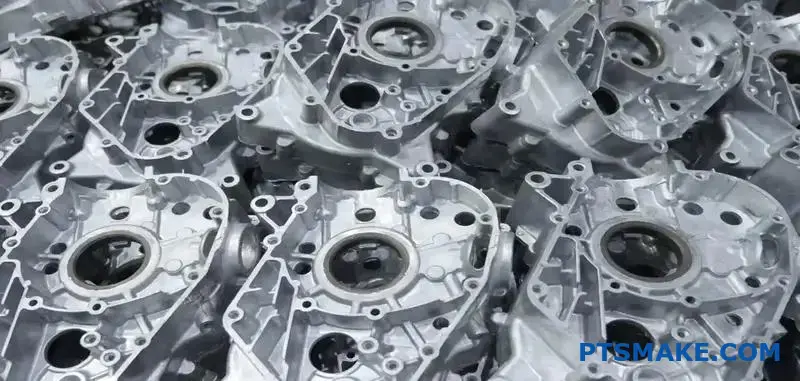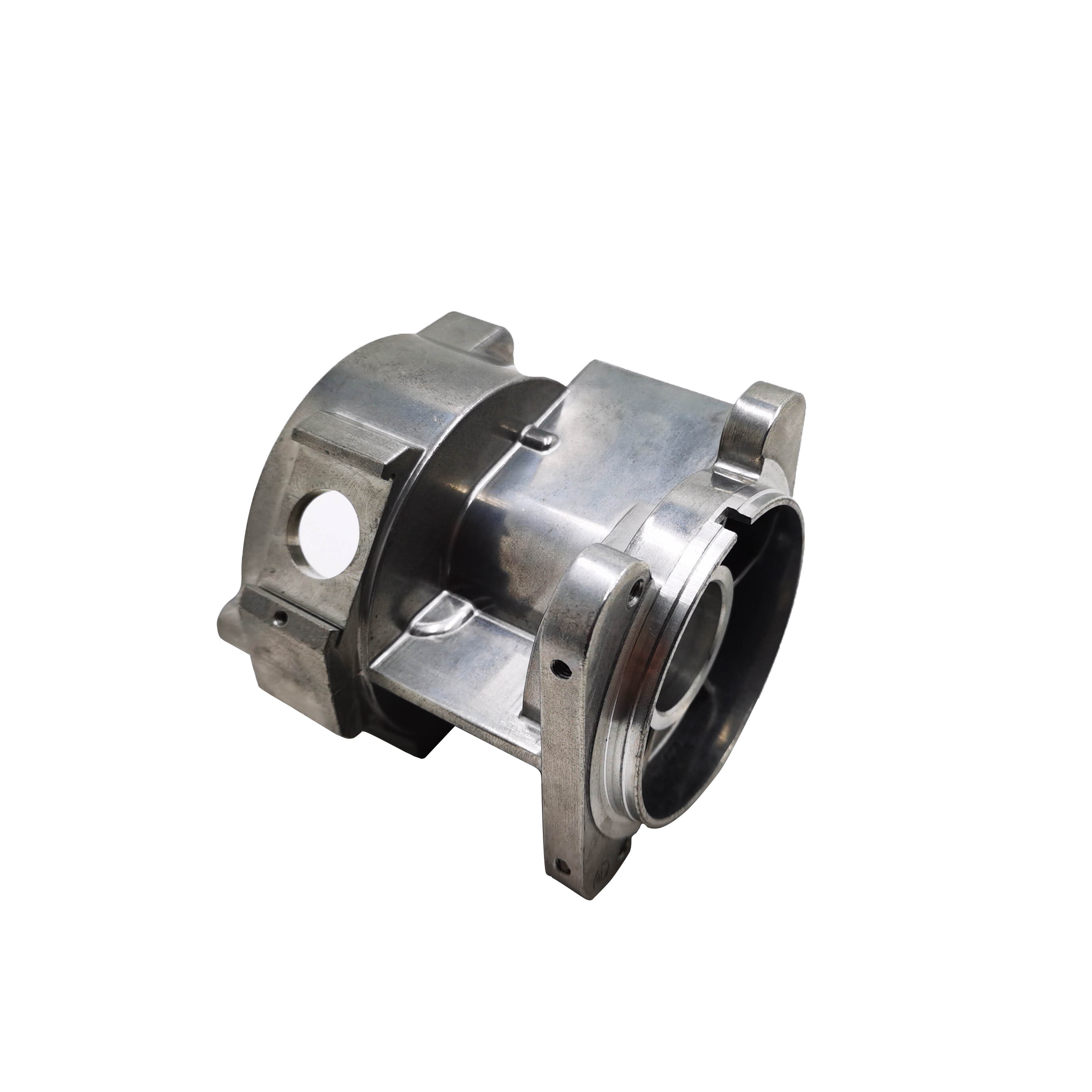The strengths of working with an expert Aluminum Casting Company
A Comprehensive Overview to Selecting the Right Factory Solutions for Your Project Requirements
Picking the appropriate factory solutions is important for the success of any type of project. Each casting method-- sand spreading, financial investment casting, and pass away spreading-- has special advantages. Understanding these alternatives assists in making informed choices. Material option, production capacities, and high quality assurance are vital aspects to consider. In addition, examining prices can influence long-term stability. Precision aluminum casting. What factors should lead this decision-making process?
Understanding the Different Kinds Of Foundry Services
While the world of foundry services might seem complicated at first look, recognizing the numerous kinds can greatly improve the production procedure. Factories generally specialize in casting metals, and the major types include sand casting, financial investment spreading, pass away spreading, and centrifugal spreading.
Sand spreading entails producing mold and mildews from sand and is excellent for large parts or low-volume manufacturing. Financial investment spreading, on the other hand, supplies high accuracy for elaborate styles, making it appropriate for aerospace or clinical applications. Die casting, defined by forcing molten metal right into molds under high stress, is efficient for automation of smaller sized components.
Centrifugal spreading uses rotational force to disperse liquified metal, yielding strong, round elements. Each solution kind is and has distinct advantages selected based on particular job needs. Comprehending these differences enables makers to choose one of the most appropriate foundry service, eventually improving performance and product quality.
Key Factors to Consider in Product Option
Selecting the suitable product for shop solutions is an essential step that influences the general success of a task. Key aspects in material option consist of mechanical residential properties, thermal resistance, and rust resistance - Precision aluminum casting. Recognizing the desired application and its demands is essential; materials must withstand operational stress and anxieties while keeping honesty in time
Another crucial factor to consider is the material's compatibility with the picked production procedure, as some products are much better suited for details techniques. Cost-effectiveness likewise plays a significant role, as spending plan restraints can restrict options.

Last but not least, schedule and lead times of products can affect task timelines, making it essential for task supervisors to evaluate these elements extensively. By thoroughly evaluating these components, one can guarantee a much more effective and reliable factory service experience.
Assessing Production Capabilities and Technologies
Exactly how efficiently a shop can satisfy task specs depends upon its production capabilities and technologies. A comprehensive analysis of these aspects is important for job success. Manufacturing capacities incorporate the factory's capability to handle differing task dimensions, timelines, and intricacies. Comprehending the factory's tools and machinery is vital, as contemporary technologies such as computer numerical control (CNC) machining and advanced read what he said mold-making techniques can considerably enhance accuracy and effectiveness.
Additionally, the foundry's use innovative products and processes, such as 3D printing or lost foam casting, can use advantages regarding style adaptability and cost-effectiveness. It is additionally essential to examine the shop's ability to range manufacturing, guaranteeing that they can suit future rises popular without compromising top quality. By carefully assessing these aspects, project managers can make educated decisions about which shop is best suited to satisfy their specific manufacturing needs and technological assumptions.
Significance of Quality Control in Metal Casting
Quality guarantee stands as a critical pillar in the steel spreading sector, ensuring that every part meets rigorous requirements and criteria. This process entails systematic tracking and examination of each phase of production, from first style to last inspection. Applying rigorous quality control protocols boosts the dependability and efficiency of cast elements, decreasing the likelihood of problems that can compromise structural integrity.
Moreover, efficient quality assurance cultivates trust fund in between clients and shops, as adherence to high requirements indicates dedication to quality. It also lessens costly rework and delays, enhancing manufacturing procedures. By recognizing prospective concerns early, quality control not only safeguards the end item yet also adds to continuous enhancement within the factory's procedures. Inevitably, focusing on quality assurance in metal spreading is essential for accomplishing client complete satisfaction and keeping an affordable edge in the sector.
Examining Cost-Effectiveness and Budget Plan Restrictions
While traversing the intricacies of factory solutions, evaluating cost-effectiveness and budget plan restrictions becomes a vital factor for businesses. Understanding the complete expense of possession entails more than just the preliminary cost; it requires an analysis of long-term expenditures, including materials, labor, and operational effectiveness. Business need to ask for in-depth quotes that outline all potential costs, enabling a clearer comparison between different factories.
In addition, companies have to evaluate their details project requirements versus budget limitations. This includes examining the compromises in between lower expenses and possible effect on top quality, lead times, and reliability. It is important to consider whether the chosen shop uses scalable services that Get the facts can accommodate future demands without considerable monetary stress. By meticulously stabilizing expense aspects with task goals, companies can make educated decisions that maximize both budget plan and performance, making sure successful end results for their foundry jobs.
Frequently Asked Questions
Just How Can I Ensure Timely Distribution of My Foundry Task?

What Qualifications Should a Shop Solution Company Have?
A trusted foundry service provider should possess certifications such as ISO 9001 for top quality monitoring, ISO 14001 for ecological monitoring, and industry-specific certifications that show compliance with security and efficiency criteria appropriate to the casting procedure.
Can I See the Shop Prior To Choosing?
Yes, going to the foundry prior to deciding is usually suggested. This allows prospective clients to analyze the center, fulfill the team, and assurance that the solutions align with their particular task needs and criteria.
What Is the Regular Preparation for Personalized Castings?
The common preparation for custom spreadings varies from 4 to twelve weeks, depending on the intricacy of the design, product specifications, and the shop's ability. Timely communication can commonly quicken the procedure.
How Do Shops Manage Style Changes Throughout Manufacturing?
Factories generally suit style adjustments throughout manufacturing by implementing versatile procedures. They assess the effect on timelines and costs, interact with customers, and adjust operations to assure quality while decreasing interruptions to the production timetable.
